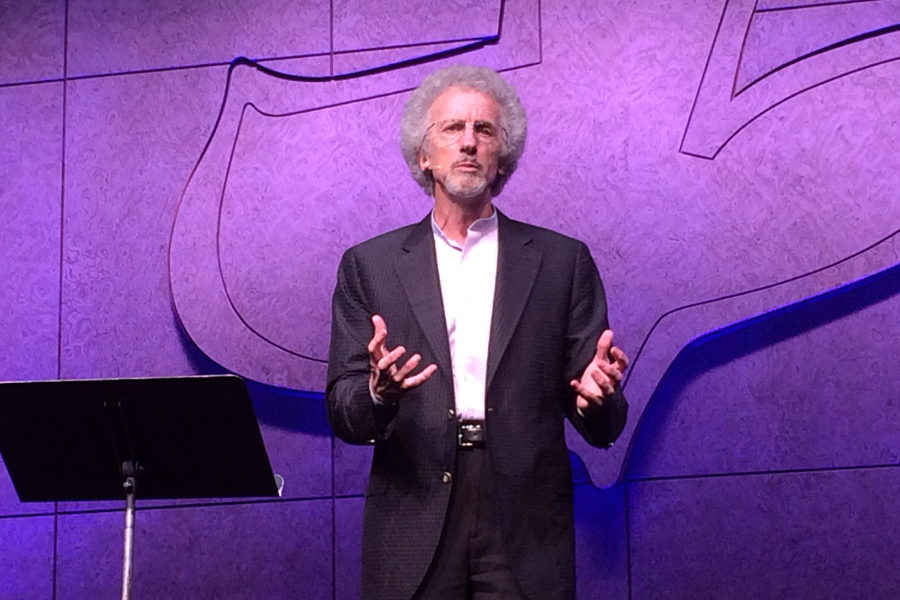Fullness of life

Fullness of life
28 September 2018
Photo: Rita Astrovich
Share my yoke. This invitation comes from Jesus as recorded by Matthew in the New Testament, but many Salvationists will also recall this as the title of a song written by British officer, Major Joy Webb.
Joy must have been going through some tough times to have written from her heart, “When things I’ve counted on just do not come my way ...”; and much deeper, “When I’ve lost the things that always seemed so sure ...”
The Christian life is not a bed of roses as some “prosperity doctrine” teachers assume. This is a dangerous and faulty view of life.
Those who live by this mandate are, to be kind, living in a fool’s paradise. The very serious issue of human suffering, whatever its source, is still with us today.
It is a very confronting issue and has been for thousands of years. Suffering comes from a variety of sources and varies in intensity.
It may arise from a broken relationship, loss of a loved one, loss of health, financial loss, or even moral or spiritual failure.
The first recorded biblical study of the issue goes back to the writing of the book of Job in the Old Testament. Some scholars think it may have been written at the time of Moses, or even the time of Abraham.
Others think that Job may not have existed at all, historically, and was just a treatise. These questions do not matter as the issue is plainly there. Job’s “comforters” asserted that his suffering was God’s punishment because of his sin. But Job maintains his innocence.
This belief that suffering comes because of sin was still there in Jewish thinking in Jesus’ day. The disciples asked him, “Rabbi, who sinned, this man or his parents that he was born blind?”. Jesus answered, “Neither this man nor his parents sinned, but this happened so that the work of God might be displayed in his life” (John 9:2-3).
But we need to be clear here that Jesus was not implying that this man’s blindness was caused by God. It was his cure that was to glorify God. This view is still held by many today. How often have we heard, “What did I do to deserve this?”. Well, perhaps nothing. We live in a damaged world and it abounds in unfairness, and it is more unfair to some than to others. Where that unfairness comes from hardly matters to those suffering.
the problem with ‘no’
That pain may be physical, emotional, or spiritual ... perhaps all three. Suffering is not always the fault of those who suffer.

It is estimated that 3.1 million children die every year for lack of food, and 800 million have insufficient food to live healthy lives. Yet there is more than enough food to feed the world’s population of 7.6 billion. The selfishness in the world is to blame.
One of the problems in our thinking is as to why God does not answer the prayers of the world’s sufferers. Those who claim that God always answers prayers have a problem here. The response that God does always answer, but sometimes says “no”, is just a play on words. It does not explain why he says “no”.
When God says “no”, it is because he has some deeper purpose in mind for us. Augustine wrote in the 4th century, “Without God we cannot, without us God will not”. God, for his own reasons, has chosen to work through us, his church.
So if we Christians are not doing all that God wants, the work does not get done. We all have to live with that, whether we are Christians or not. No one is exempt, though there is some erroneous teaching that in being Christian you are bound to prosper.
Firstly, we need to understand that it is not always God’s wish that anyone should suffer in this life or the next. We need to differentiate suffering from pain. Pain is often a signal that something is wrong and needs fixing. So some pain is positively good for us.
We could say that God does not initiate suffering. Our problem is to find healthy ways of dealing with this problem that confronts so many of us. We are not looking for “pat answers”, which some offer, nor theological abstractions that learned theologians expound. We need real understanding and realistic sympathy.
One of the ways is to read about the life experiences of some who have faced horrific suffering and yet lived healthy and fulfilling lives. We have to admit that some of the best work done in the church is being achieved by those who have suffered most.
Allow me to suggest three people who accomplished this. In each case their relationship with God did not relieve them of their pain. Admittedly, these are extreme cases and not everybody has serious issues like these people, and sometimes there are things we can do to relieve our suffering, but when we can’t we need God’s help.
inspirational sufferers
Take the case of one David Watson, who was one of the 20th century’s most successful ministers of the cloth. David, an Englishman, was scheduled to undertake a series of lectures in the United States.
Theologians from around the world were booked in to learn from him and his team. But a few days before he was due to leave, with all of his preparation intact, a medical specialist diagnosed him with a terminal illness for which there was no cure.
David was told he had about 12 months to live. David recounts his story in his biography Fear No Evil, the words taken from Psalm 23 where King David wrote, “Though I pass through the valley of the shadow death I will fear no evil, for you are with me”.
David Watson’s book recounts in fine detail the last year of his life and his response to his deteriorating health. God did not heal him, and he had to come to terms with that, but he never lost his faith. His belief was that God could do something for him and through him in his torturous suffering. 
American author Philip Yancey (pictured right) says, “Health and life, I would say, in the full and final sense of the words, are not what we die of, but what we die into”. And he asks, “Where is God when it hurts? He is in us – not in the things that hurt – helping to transform bad into good”.
Yancey penned two books on this problem of human suffering, and dealt with it exhaustingly. The first was Where Is God When It Hurts published in 1977, and later, Disappointment With God published in 1988.
Yancey tells of his interview with Joni Eareckson Tada, who suffered a spinal fracture from a swimming accident and was paralysed from the neck down. At first she found it too hard to accept that she would never be cured, but gradually learned to accept that God was with her in her pain and that some purpose could be served from her loss.
She admits once saying to a friend, “Please do one thing for me. I can’t face it any longer ... help me to die.” “So,” wrote Yancey, “Joni learned another cruel fact: she was too helpless even to die on her own”. It is hard to imagine anything more painful than that. Yet today she speaks at conferences around the world. Further, she says, “God has proven to me that I, too, can have fullness of life.”
Yancey tells another story about Brian Sternberg, who was at one time the world’s greatest polevaulter. In 1963, while training on a trampoline, he landed awkwardly and broke his neck, leaving him a quadriplegic at the age of 20.
His parents who cared for him all his life said, “We believe in a loving God and we still believe God wants to heal Brian”. And he said the same. Brian came to faith in the aftermath of his accident and went on to tell his story to thousands of people. He once said: “I never felt like a winner until I put God in the centre of my life.”
Suffering, as I indicated earlier in this article, is, as these three examples confirm, a confronting issue which has been with us for thousands of years.
It has its origins in a variety of sources and varies in intensity. What we learn, however, from the three examples I have cited, is that it’s not what suffering does to us that matters, but what we, with God’s help, do with our suffering.
Joy Webb’s song clearly spells out the way to think and live. Through the three verses of her song she tells of her loss, and closes the verses with, “’Tis then I long to hear him say ...”, then in the chorus, Jesus answers, “Share my yoke and find that I joined with you ...”
Lieut-Colonel Neil Young is a retired Salvation Army officer.
Comments
No comments yet - be the first.